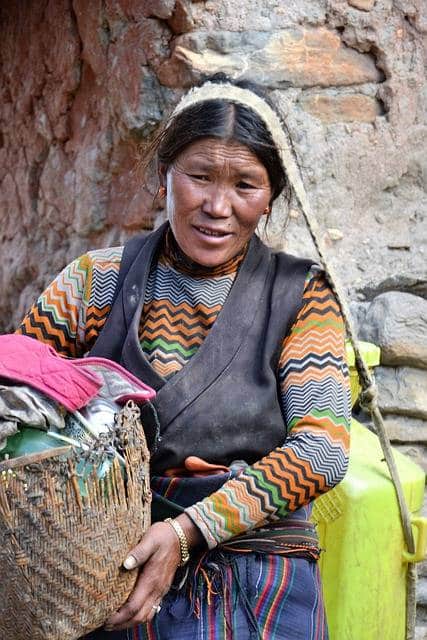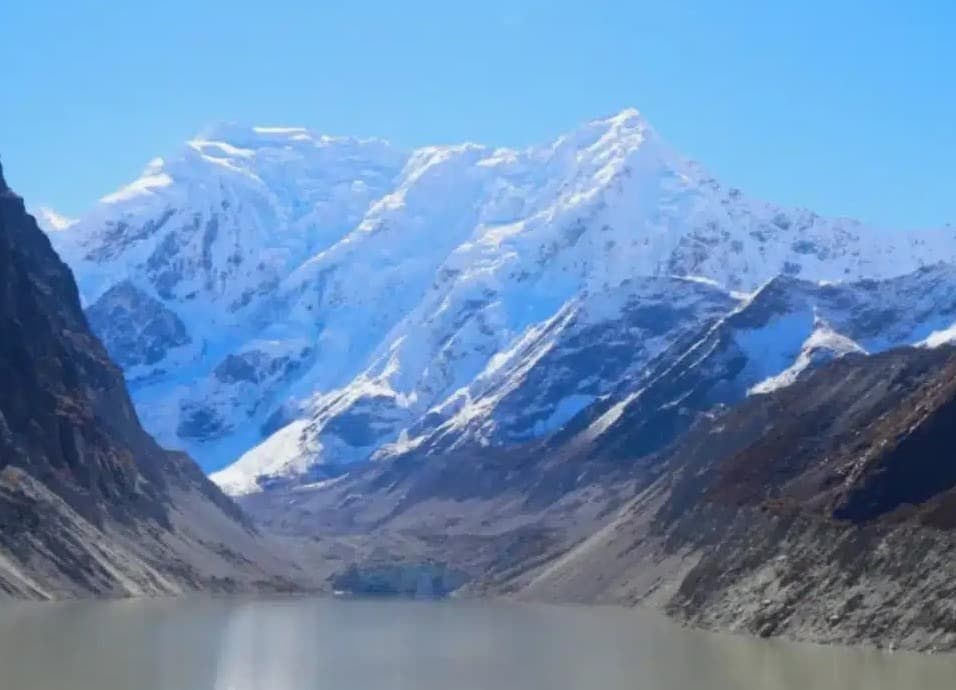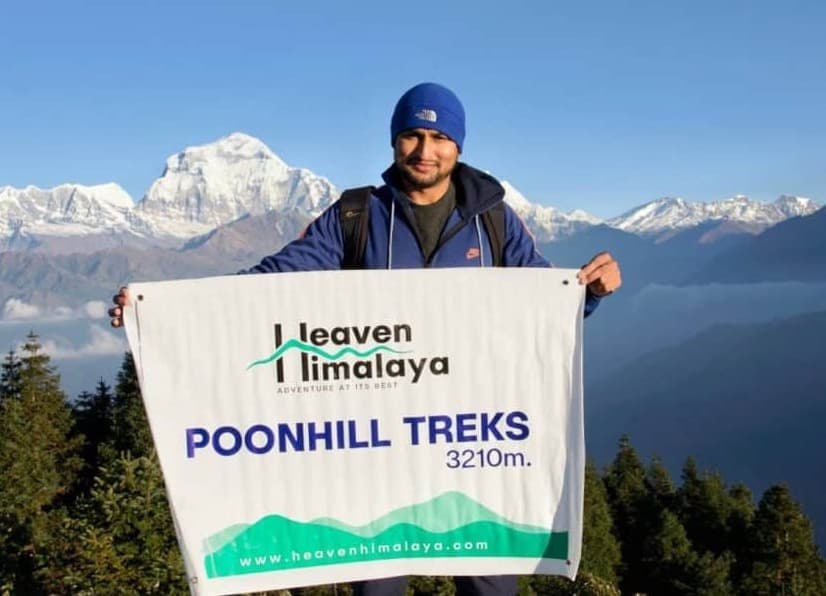The Nepali language is fun to learn. If you are visiting Nepal, remembering a few Nepali words will help you start a conversation with locals.
Usually, Nepalese do not expect foreigners to speak their native language. But, if you can speak, you add value to them.
Most Nepalis will be ecstatic to listen to whatever you say in their local language. They will be happy to know that you are paying attention to their home language and their culture. Also, learning a few Nepali vocabulary for some common terms will make it easy to carry out a discussion.
So, we advise you to learn some common Nepali words before visiting Nepal.

Is it compulsory to learn Nepali words?
You are fine to speak your language when traveling with a guide or in the major city areas. But, if you want to communicate with the elderly locals in the rural areas, learning a few Nepali phrases will help you bring smiles to their faces.
However, it won’t be a problem on the popular trekking trails in Nepal. There, you will find English-speaking faces everywhere.
Schools teach English from kindergarten. So, it won’t be a problem if you don’t know any Nepali words at all. Every child can understand English. They may find it difficult to understand your accent, but they will surely help you to some extent.
Yet, not knowing some common words related to travel will surely make your Nepal trip more interesting.
So, I recommend you learn some common words like Namaste (Greeting), Paani (Water), Maff Paun (Sorry), Okhati (Medicine), etc.
Nelson Mandela once said,
“If you talk to a man in a language he understands, that goes to his head. If you talk to him in his own language, that goes to his heart.”
So, even if you are traveling as a tourist then it’s good to know basic Nepali phrases.
Beginner Nepali Word Lists
Here are some must-know common Nepali phrases for tourists dwelling in Nepal. After you have booked your trip, try speaking with someone at your home. Trust me, you will love it.
Must-Know Nepali Phrases for Travel
Hello/Hi – Namaste
Please – Kreepaya
Thank You – Dhanyabad
Give me some water – Malai Paani Dinus Na
Very Beautiful- Ati Raamro
Can I take a photo? – Photo (Tasbir) Khichna Milchha Hola?
Can you help me? – Malai Sahayog Garna Saknu Hunchha?
What’s its price? Yeslai Kati Parchha?
Yes- Ho
No – Hoina
Police- Prahari
Hospital- Aspatal
Money- Paisa
Nepali Phrases for Greetings and Pleasantries
Greetings are very important to start a talk. Welcoming people makes them feel good about you. After you meet someone new, say Namaste with a smile, joining your two hands.
Joining hands is okay. But bowing a little means you are showing them more respect. Here are some common Nepali words that are often used to greet someone.
Hi/ Hello – Namaste or Namaskar (more improvised version)
Excuse Me- Hajur – (It’s a multi-purpose word and can be used for saying Pardon, Excuse me, and Yes.)
I don’t understand- Maile Bujhina.
I hope we meet again- Pheri Bhetaula.
Are you okay? – Thik Chha?
I am Okay- Malai Thik Chha.
My Name Is.. – Mero Naam Ho..
I am Glad/Happy- Khusi Laagyo
What is your name?- Tapaiko Naam K Ho?
Good Morning – Subha Parbhat.
Good Night – Subbha Ratri.
Have a Nice Day – Hajurko Din Subha Hoss.
I am Sorry – Maaf Garnu Hoss
Take Care – Khayal Garnuhos
Bye, I am Leaving- Namaste, La Ma Gaye Hai
Basic Nepali Numbers Counting for Travel
Numbers are the most important thing when you compare something with a price. If you are buying something, then it may be a problem for you to figure out what the shopkeeper is saying.
Anyway, you can still say it by writing the number or looking at the price of the product. However, learning Nepali numbers is easy and very fun. Also, Nepali and English numbers look almost the same, so it’s easier to guess.
Zero (0) – Sunnaa (0)
One (1) – Ek (१)
Two (2) – Dui (२)
Three (3) – Tiin (३)
Four (4) – Char (४)
Five (5) – Paanch (५)
Six (6) – Chha (६)
Seven (7) – Saat (७)
Eight (8) – Aath (८)
Nine (9) – Naun (९)
Ten (10) – Dashh (१o)
Major Number’s used in Nepalese Currency
The Nepalese currency has five, twenty, fifty, one hundred, five hundred, and a thousand rupee paper notes. We have one and two rupee coins, but those are barely used.
Thus, learning how to spell those numbers in Nepali will help you recognize the money and also have a fluent conversation with the local vendors when trying to buy some products.
Five (5) – Paanch (५)
Ten (10) – Dashh (१o)
Twenty (20) – Bish (२0)
Fifty (50) – Pachas (५0)
Hundred (100) – Saya (१00)
Five Hundred (500) – Paanch Saya (५00)
Thousand (1000) – Hajar (१000)
Addressing People
The Nepalese value relationships a lot. Even if you are a stranger, it’s best to pick relationship phrases to start a conversation.
For example, if somebody younger or slightly older than you brings you a drink, and you say thank you. But, in Nepal, it’s better to say thank you, brother or sister. This way, you build a connection with people.
Every relationship has different terms. Use them according to their age and gender.
Mother – Ama
Father – Buwa
When you address elderly people using “Aama” (female) or “Buwa” (male), this shows you show her/him huge respect and value their culture. However, they do have different related words.
Grandfather – Hajurbuwa
Grandmother – Hajuraama
Other common Nepali phrases for relationship words are:
Elder Sister – Didi
Younger Sister – Baini
Don’t call someone who looks younger or slightly older than you “Didi” (elder sister). This reminds them they are aging and they feel bad about it. If you call them Baini (younger sister), they will smile and continue the conversation.
Younger Brother – Bhai
Elder Brother – Dai
Apologies in Nepalese
Suppose you did something wrong, knowingly or unknowingly. In such situations, asking for an apology helps settle a bit. Let’s say you got onto someone’s private property, not knowing the exact trails or roads. There you ask for an apology from the house owner.
And almost all Nepalese understand the word “sorry,” but if you use their local Nepali language, they will feel better about it. So, let’s learn a few common Nepali words that are used to ask for an apology. This way, you can also avoid any misunderstanding when dealing with people of different cultures and backgrounds.
I am Sorry / Pardon Me – Malai Maaf Garidinus
It’s my fault – Yo Mero Galti ho
I didn’t know – Malai Thaha Bhayena
Apologies – Maafi
Excuse me, please! – Kripaya Malai Maaf Garidnus.
Asking Directions in the Nepali Language
Getting lost is a major problem for solo travelers who are trekking off the beaten paths and some village routes. Sometimes, the mobile towers don’t work, and you can’t access your Google Maps. During these times, you will ask local villagers about the routes and the trails that take you to a noticeable tourist stop.
So, let’s learn some common ways to ask for directions in Nepal in our language.
Where does this way lead to? – Yo Baato Kata Jaanchha?
Are there any hotels nearby – Eta Katai Hotels Chha?
I am lost – Ma Haraye.
Can you show me the road that leads to a hotel? – Malai Hotel Jaane Baato Dekhaidina Saknu Hunchha?
What is the name of this place? – Yo Thau Ko Naam K Ho?
Please Help – Sahayog Garnus
Downhill – Oralo
Uphill – Ookalo
Right – Daaya
Left – Baaya
Straight Ahead – Sidha Agadi
North / South / East / West – Uttar / Dakshin / Purba / Pashchim
Transportations
Taxi – Taxi
Bus – Gaadi or Bus
Train – Train
Car – Car
Airplane – Hawaijahaj
Motorcycle/Bike – Bike
Common Nepali Words for Health/Emergency/Security
When you get into a problem, yell “help” and the locals will figure out what’s wrong with you. Also, everyone here understands the word “ambulance,” so it won’t be a problem to get help in emergencies.
But, let’s learn some Nepali vocabulary that refers to some important terms relating to health, emergency, and security.
Danger- Khatara
Help – Guhar
Doctor – Daaktar
Nurse – Nurse
Hospital – Hospital or Aspatal
I don’t feel good. – Malai Sancho Chhaina.
Ambulance- Ambulance
Police – Pulish or Prahari
It hurts here. – Malai Eha Dukchha.
What happened? – K Bhayo?
What to do now- Aba K Garne?
Basic Nepali vocabulary used while eating
It’s always good to thank the person who is providing you with the food. And if you find it good, just say, “It’s very delicious.” This will make them happy. These are simple manners that can be used while eating.
Further, Nepalese are very affectionate. “Have you eaten?” is as common as “How are you?” So, when you are with someone and you get your food served, ask the second person if he would like to eat. It’s a way of showing respect.
Also remember, it’s disrespectful to throw away or waste food in Nepal. When served a second time, ask a little. You can ask for the 3rd time again if it’s not sufficient for you.
I am Hungry / I am thirsty – Malai Bhok Laagyo / Malai Tirkha Laagyo
Lunch / Dinner – Khana
Breakfast / Tiffin – Nasta
A little – Ali Ali
I am full – Malai Pugyo
It’s Delicious – Ati Mitho Chha
Here / Take this – Linus
Hot – Taato (for drinks and food)
Cold – Chiso (for drinks and food)
Water – Paani
Tea – Chiya
Coffee – Kafi
How much is it? – Kati Bhayo (Used while asking for the total cost)
It’s spicy / I don’t like Spices or Not Spicy Please – Piro Chha / Ma Piro Khaadina
I can’t eat / I am allergic to – Malai Khana Hudaina
You have it – Tapai Khanus
I am Vegetarian – Ma Saakahari ho
Peanuts – Badaam
Seafood – Samundri Khana
What do you recommend? – Tapai k Sifaarish Garnuhunchha?
English Hours/Date/Days in Nepali Words
Hour – Ghanta
Half an hour – Aadhi Ghanta
What time is it now? – Ahile Kati Bajyo?
Give me some time – Ekchhin
Day / Morning / Afternoon/ Evening / Night – Din / Bihana / Deuso / Beluka or Saanj / Raati
Yesterday / Today / Tomorrow – Hijo / Aajha / Bholi
Sunday – Aaitabar
Monday – Sombar
Tuesday- Mangalbar
Wednesday – Budhabar
Thursday – Bihibar
Friday – Sukrabar
Saturday – Sanibar
Express Your Feelings in the Nepali Language
When you like something, you say, “It’s beautiful” or something similar to it. Here in Nepal, you say “Ati Raamro.” However, most people in the tourist areas understand the word “beautiful.” But they will be happier to hear it in their mother tongue.
One should always learn to say some basic terms in the local language whenever visiting a new country. Thank you for work everywhere. And please goes along as well. Suppose someone is charging you some extra money for something, instead of yelling and shouting, say, “Please” with a smile. This will surely work every time.
And, if you love someone or appreciate something, saying it in Nepali will help you win their trust. Hence, here we will learn to express our feelings in the Nepali language.
I love you – Ma Timilai Maaya Garchhu
Let’s go on a date – Ghumna Jaam
You’re very beautiful. – Tapai Ekdam Raamro Hunuhunchha.
I love your country a lot. – Malai Tapaiko Desh Ekdam Mann Paryo.
Please – Kripaya
You’re Welcome – Swagatam
Thanks Again – Feri Dhanyabad
Nepali Language Tips for Travel
Here are some tips for traveling in Nepal.
- Always talk in a polite tone.
- If somebody’s children on the route ask you for money, Simply Say I don’t have (Chhaina) and walk away.
- If you feel bad about something related to culture, don’t say it straight to their face. This will aggravate them.
- If you want to bargain in local markets, then learn a few Nepali numbers listed above.
- Use Nepali relationship phrases to build a connection while starting a conversation with someone.
- Always ask for permission to enter someone’s private property.
- Bookmark this blog, “Learn Nepali words” while you are in Nepal. So, you can find Nepali meaning while you need it.
In the end,
We hope the above list of Nepali words will help you while you are in Nepal. Still, if you have a problem communicating, download a Nepali dictionary app that is easily available in the Android Playstore and Apple’s Appstore.
The Nepalese are very hospitable and will always try to assist you in every way possible. The phrase “Atithi Devo Bhava” means “Guests are God” and is a common term taught to us since childhood. Communication is the key. Thus, you still need to make them understand what you are trying to say. Henceforth, it’s important to learn Nepali words.










